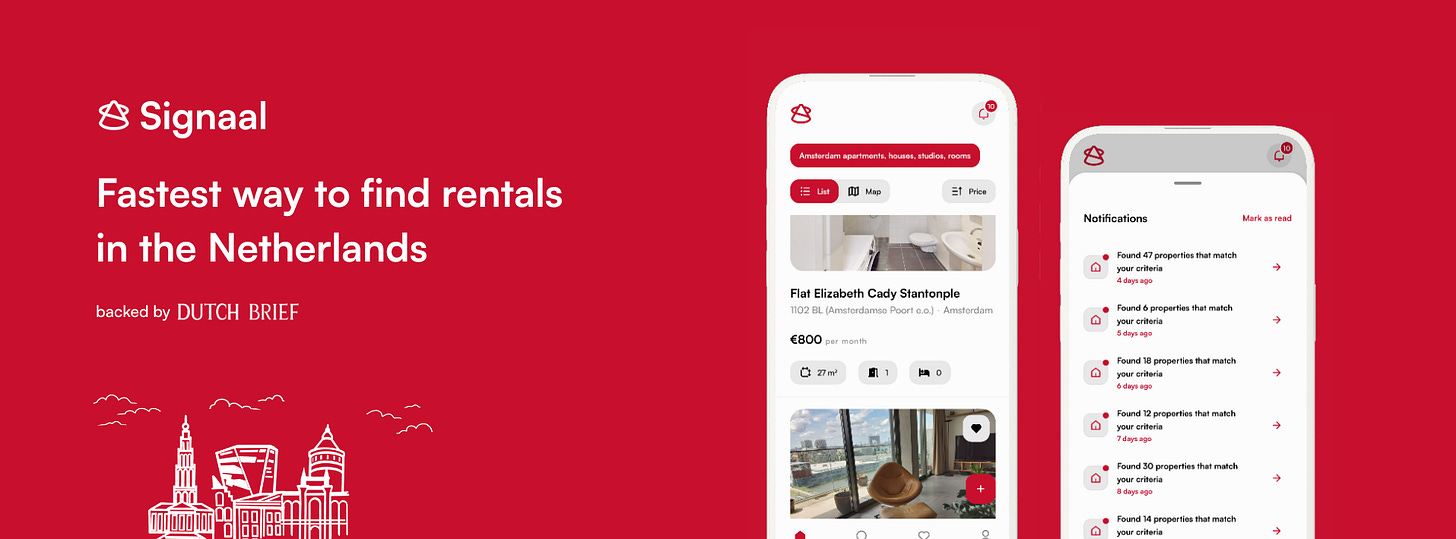Many Tenants in Social Housing With Solar Panels May Pay More in 2027
Over 500,000 social housing tenants pay about €3.50 per panel monthly. From 2027, an estimated 85% could pay more as home batteries remain too expensive.
Before we begin, a quick shoutout to our sponsor, Signaal:
Looking for housing in the Netherlands?
Signaal helps you skip the endless scrolling by tracking new listings from trusted platforms and alerting you when something matches your needs, all in one easy-to-use app.
What changes in 2027
From 1 January 2027, the Netherlands will abolish the salderingsregeling (net metering). After that date, households can no longer offset the electricity they export against what they use; exported power will only earn a (lower) feed-in payment, while all consumption is billed at the full retail tariff. This change was set out in the coalition agreement and detailed in background briefings on the new law.
Why tenants are at risk
Social housing corporations have installed panels on 500,000+ homes. Tenants typically pay about €3.50 per panel per month in service charges. Without net metering, most tenants won’t earn enough back from daytime self-consumption and feed-in to cover those charges, meaning around 85% could be worse off, by a few to several tens of euros monthly. A joint study by the housing ministry (VRO), Aedes and Woonbond confirms that panels will often become a financial negative for tenants after 2027; sector reporting estimates 55% would pay ~€8 more per month on average.
“Home battery to the rescue”? Not yet
Pilots with home batteries show they can raise self-consumption from roughly 30% to ~60%, but economics are poor for retrofits. A 5 kWh system typically costs €2,000–€2,500 installed (including meter-cabinet and inverter work). Integrating a battery together with new panels can cut the costs to ~€1,000 and make the package viable, but that doesn’t help the hundreds of thousands who already have panels. Suppliers and installers expect prices to fall, yet sector analyses still count affordability as the key barrier today.
Mounting pushback and calls for help
Tenant organisations warn of energy-poverty risks and report rising resistance: in surveys, one in three tenants would prefer panels removed; in Arnhem, corporation Vivare has already scrapped “70% consent = everyone gets panels” and removed panels in some cases following tenant demands. The Woonbond urges the government to compensate tenants after 2027; the House of Representatives has asked the housing minister to find funding. Estimates suggest ~€541 million would be required to neutralise losses by lowering service charges.
What would actually help
Targeted compensation (temporary) to keep existing tenant-solar neutral or positive while markets adjust.
Smart retrofits where possible: pairing batteries at install time for new projects; selective battery pilots for high-mismatch homes where economics are closest to break-even.
Clarity on feed-in tariffs and tenant rights (e.g., standard contracts, opt-out options) to rebuild trust after policy shifts.




